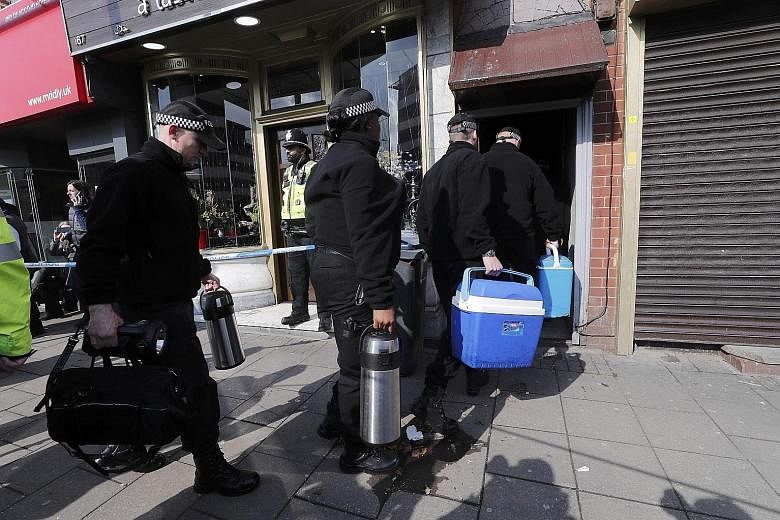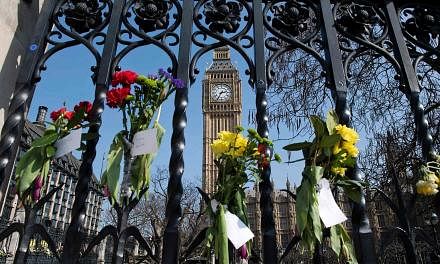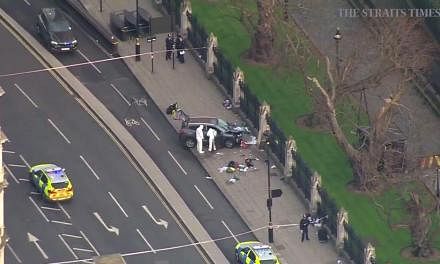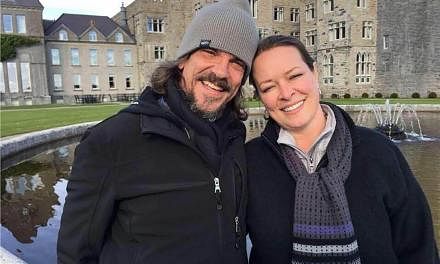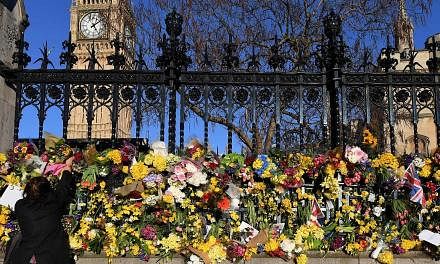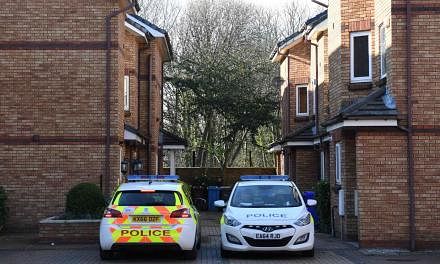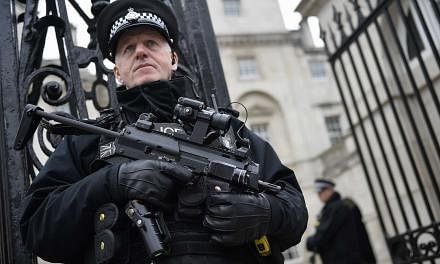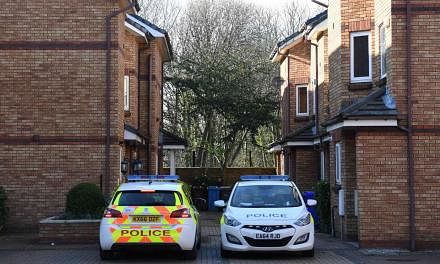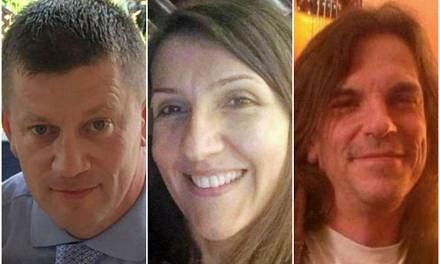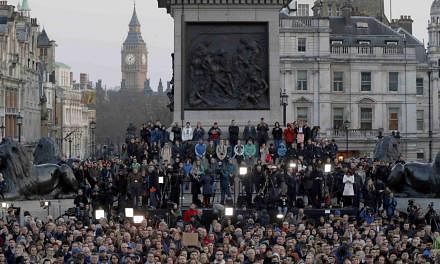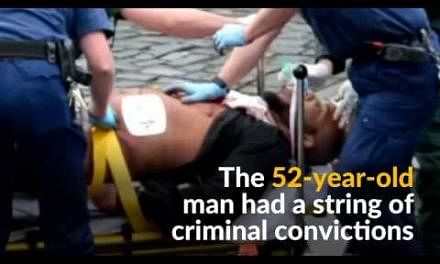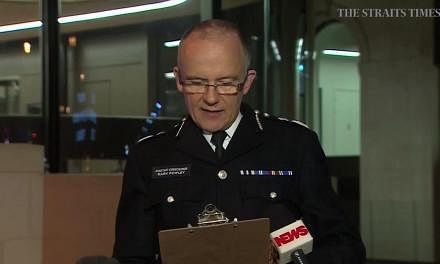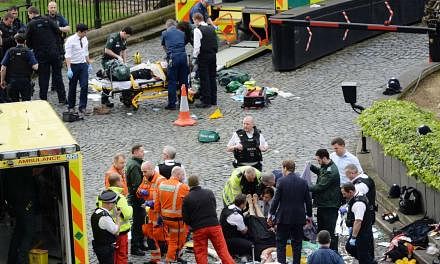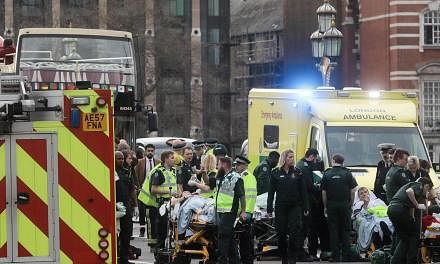BIRMINGHAM • Armed police stormed an apartment in Hagley Road - wedged between restaurants selling pizza and Persian food - one of three locations in Birmingham raided just hours after a car and knife rampage outside Britain's Houses of Parliament.
"I was shocked. That is my neighbours," said Mr Muhammed Ali, a 20-year-old retail worker. "It is scary."
The road is in the leafy district of Edgbaston - a cricket-loving corner of the country's second-largest city unused to the sight of armed police blocking off streets.
Said Mr Lucas Camoes, 23, a warehouse worker: "There are loads of university students here, so it is very surprising this happened right here."
It later emerged that the attacker, named by the British authorities as 52-year-old Khalid Masood, had lived in a three-storey house that was also raided in the Winson Green suburb, north-west of the city, for seven months until last December.
Neighbour Iwona Romek told local newspaper the Birmingham Mail that "he was a nice guy" with a young wife.
Eyewitnesses told the paper that the property was raided in the early hours on Thursday morning, while more police officers arrived in a riot van later in the day to search the property and its gardens.
Police also raided a third property in the city, making a total of seven arrests in Birmingham on "suspicion of preparation of terrorist acts".
Birmingham has been one of the hotbeds for British militants.
According to a study by the Henry Jackson think-tank earlier this month, 39 of 269 people convicted in Britain of terrorism offences from 1998 to 2015 came from the city in the West Midlands.
Among those plots was one to kidnap and behead a British soldier. In December, two men were found guilty of planning to give £3,000 (S$5,200) to Brussels bombing suspect Mohamed Abrini - known widely as "the man in the hat".
A car-hire firm in Solihull on the city outskirts has confirmed that the Hyundai vehicle used in the attack in London was rented there.
Britain's top counter-terrorism officer Mark Rowley has acknowledged that Muslim communities "will feel anxious at this time" over worries of an Islamophobic backlash, and said police will work with community leaders to ensure protection.
Birmingham is home to large South Asian and Muslim communities, last year hosting Europe's largest celebrations for the Eid festival.
The proportion of Muslims in Birmingham is 21.8 per cent of the population - compared to a national average of 4.5 per cent, according to the latest census figures.
Mr Muhammad Afzal, chairman of the Birmingham Central Mosque, said the attacker's motivations had nothing to do with true Islam.
"We are shocked by what happened yesterday," Mr Afzal told Agence France-Presse.
"There are three million Muslims in the UK, and it is a very tiny, tiny minority" that was involved in extremism, he said.
"The majority of the indigenous population respect that a majority of Muslims are peace-loving."
AGENCE FRANCE-PRESSE, REUTERS
